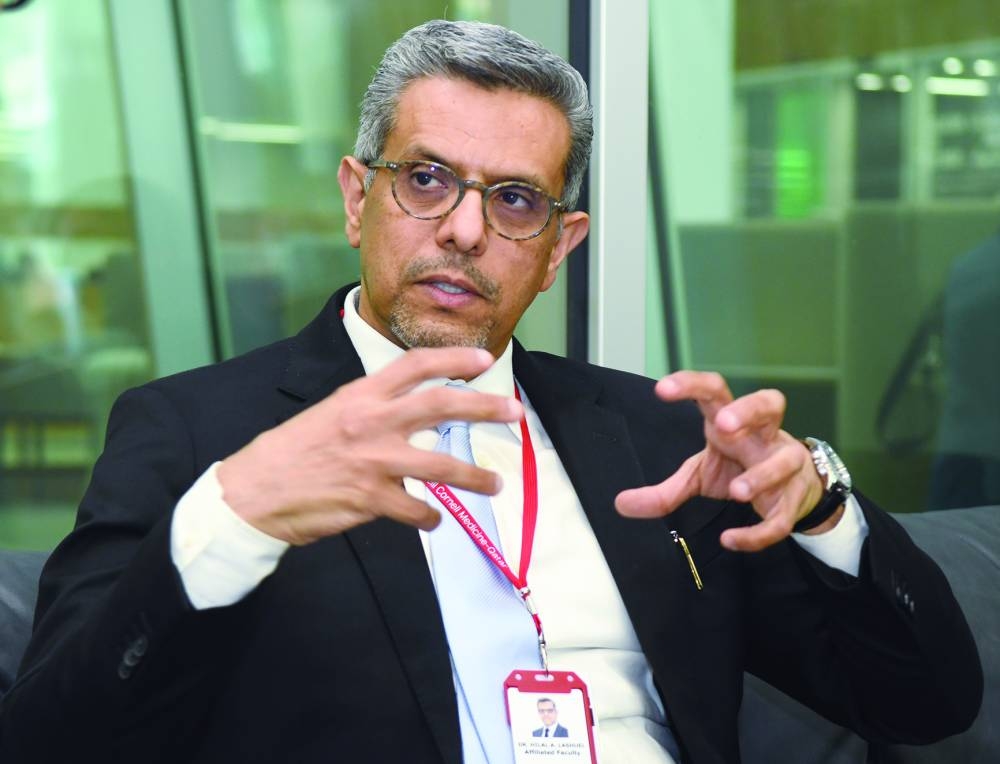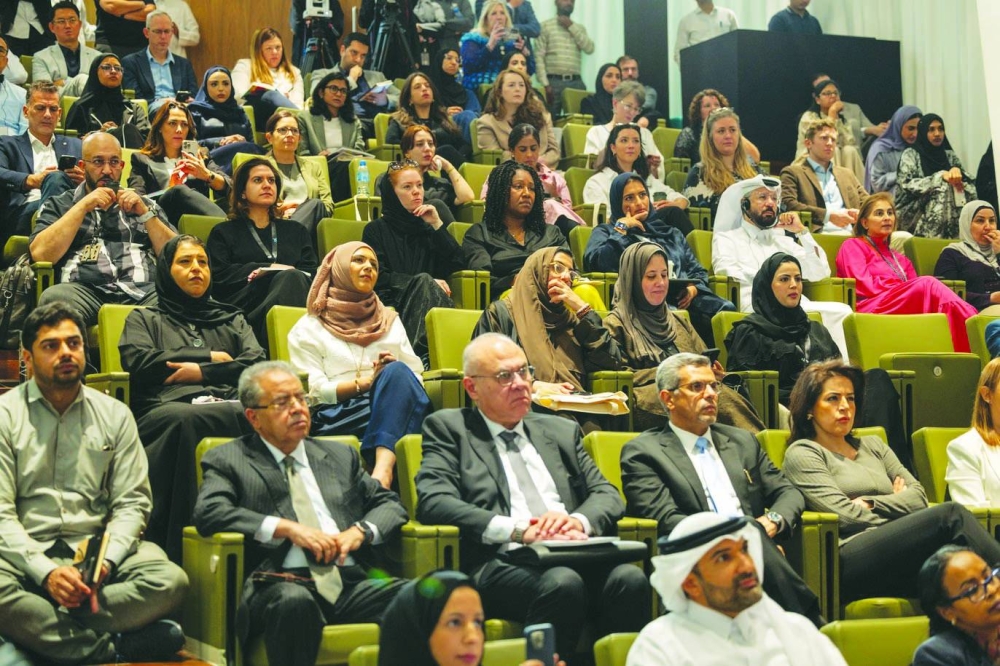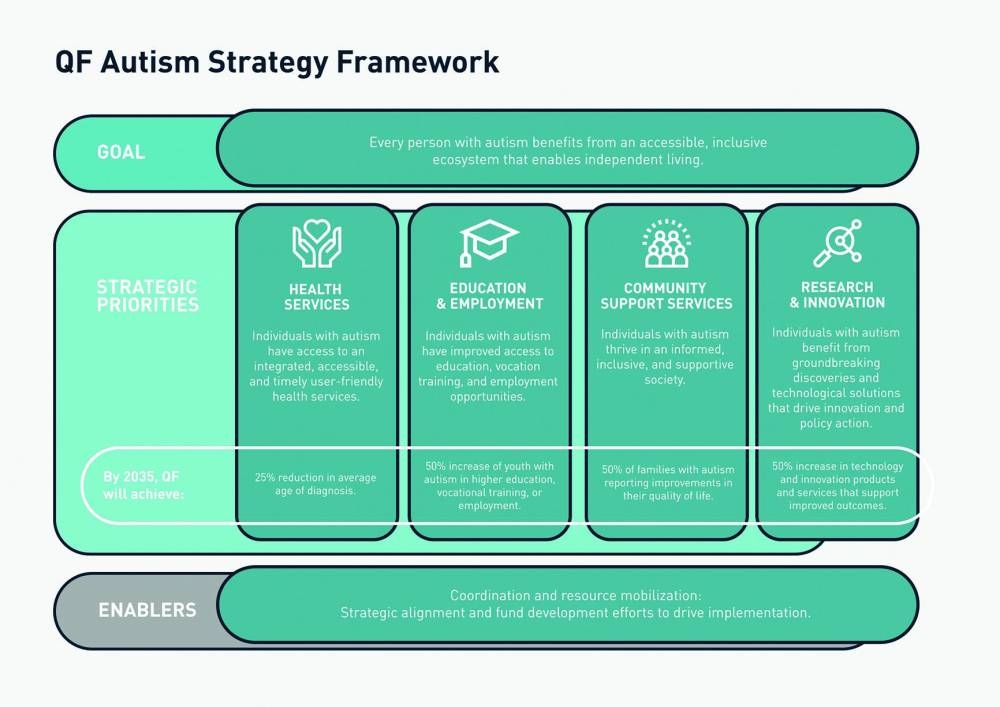The 'Qatar Foundation Autism Strategy 2025-2035' outlines a multi-faceted approach covering inclusive education, cutting-edge artificial intelligence (AI) innovations, groundbreaking genetic research, and streamlined healthcare pathways.
The strategy aligns with Qatar’s national autism agenda, recognising autism as a significant national health challenge and reaffirming QF’s commitment to disability rights, accessibility, and inclusive national development.
Speaking at the event, Dr Dena al-Thani, associate professor and head of the Information and Computing Technology Division at QF’s Hamad Bin Khalifa University’s (HBKU) College of Science and Engineering, who chairs QF’s Autism Task Force, highlighted the significance of the initiative, saying: “This launch is a milestone for QF. It stresses inclusion, empowerment”.
She noted that the roadmap reflects a proactive response to the diverse needs of individuals with autism and their families, setting concrete targets to be achieved by 2035.
Key objectives include a 25% reduction in the average age of autism diagnosis, a 50% increase in the number of young people with autism participating in higher education, vocational training, or employment, a 50% improvement in the reported quality of life for families impacted by autism, and a 50% increase in QF-developed technologies supporting improved outcomes.
Dr Dena said the strategy, developed over nearly two years, was built on evidence-based research, listening to the autistic community, and collaborative efforts with the Ministry of Public Health, ensuring alignment with Qatar’s broader national autism plan.
“Our vision, our idea is to affirm firstly the incredible value of the diversity, and the unique strength individuals with autism bring to our society but also at the same time acknowledge the gaps, the challenges we have.
She credited Her Highness Sheikha Moza bint Nasser, Chairperson of Qatar Foundation, and the Education Above All (EAA) Foundation, for spearheading the initiative through the establishment of the Autism Task Force.
The strategic priorities outlined in the plan include:
1. Health Services: Ensuring individuals with autism have access to integrated, accessible, timely, and user-friendly health services.
2. Education and Employment: Improving access to education, vocational training, and employment services for individuals with autism.
3. Community Support Services: Fostering an informed, inclusive, and supportive society where individuals with autism can thrive.
4. Research and Innovation: Driving groundbreaking discoveries and technological solutions that lead to innovation and policy action, benefiting individuals with autism.
QF noted that the strategy comprises several key initiatives aimed at achieving these targets. One cornerstone is the expansion of Renad Academy, a pioneering school under QF’s Pre-University Education, to cater to students aged 3 to 21. This expansion will enable the institution to provide comprehensive support to children with autism throughout their educational journey. Furthermore, QF will implement measures for early autism identification and intervention within its network of schools.
QF also plans to establish a community hub offering digital solutions for parents of children with autism. This hub will provide culturally relevant autism support, counseling services, and peer networks, fostering a strong support system for families. A vocational hub will also be created within Education City to offer specialised autism programmes and services, preparing individuals with autism for employment opportunities.
According to QF, AI plays a central role in the QF Autism Strategy 2025-2035, tapping its existing partnerships to develop innovative solutions for early autism detection, interventions, education, assistive technology, and parental support.
The strategy also prioritises genetic research to identify the genetic factors underlying autism. QF’s Sidra Medicine, a leading women’s and children’s hospital and medical research centre, will play a crucial role in this area, conducting genomics and multi-omics research to enable the development of personalised healthcare and therapies. Sidra Medicine will also introduce an integrated care model tailored to the unique needs of individuals with autism.
Speaking to Gulf Times, Dr Hilal Lashuel, Research, Development and Innovation Advisor to the Chairperson of QF and QF’s executive director of RDI, underscored the importance of unlocking the potential of all members of society, including individuals with autism.
He said the main objective of the strategy, based on the vision of QF’s Research, Development and Innovation, is to unlock the potential of all its people, including people with autism and disabilities.
“The idea here is to make sure that no one is left behind and individuals with autism or other disabilities have an equal opportunity to develop, live an independent and fulfilling life, and contribute to society.
“We need to be able to recognise them, we need to support them, we need to empower them, and we need not only evolve things based on their needs but based on our belief in their capabilities. So this requires a comprehensive system, a new vision, a new way of reimagining autism care, not just one based on support but based on empowerment,” Dr Lashuel said.





